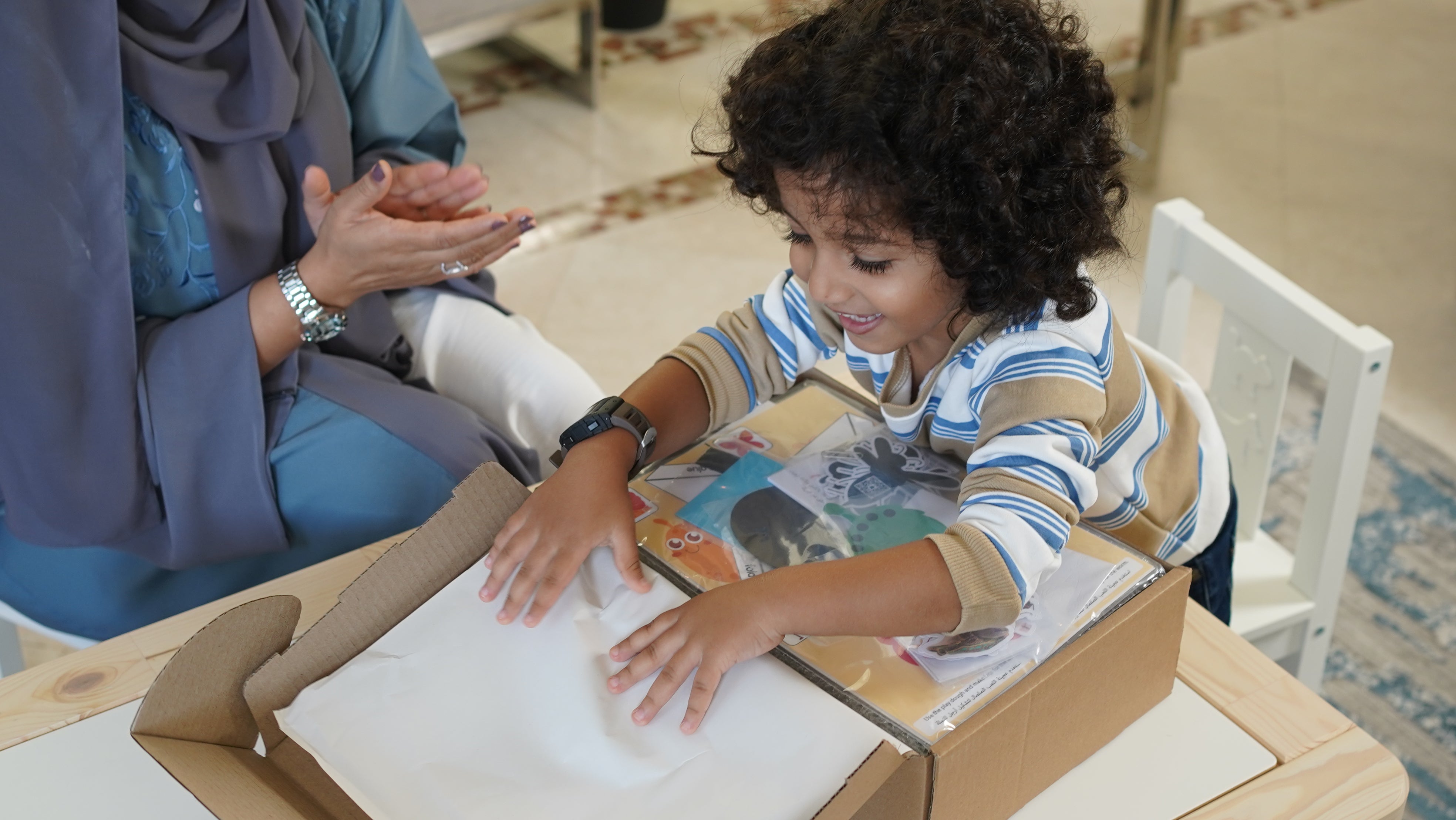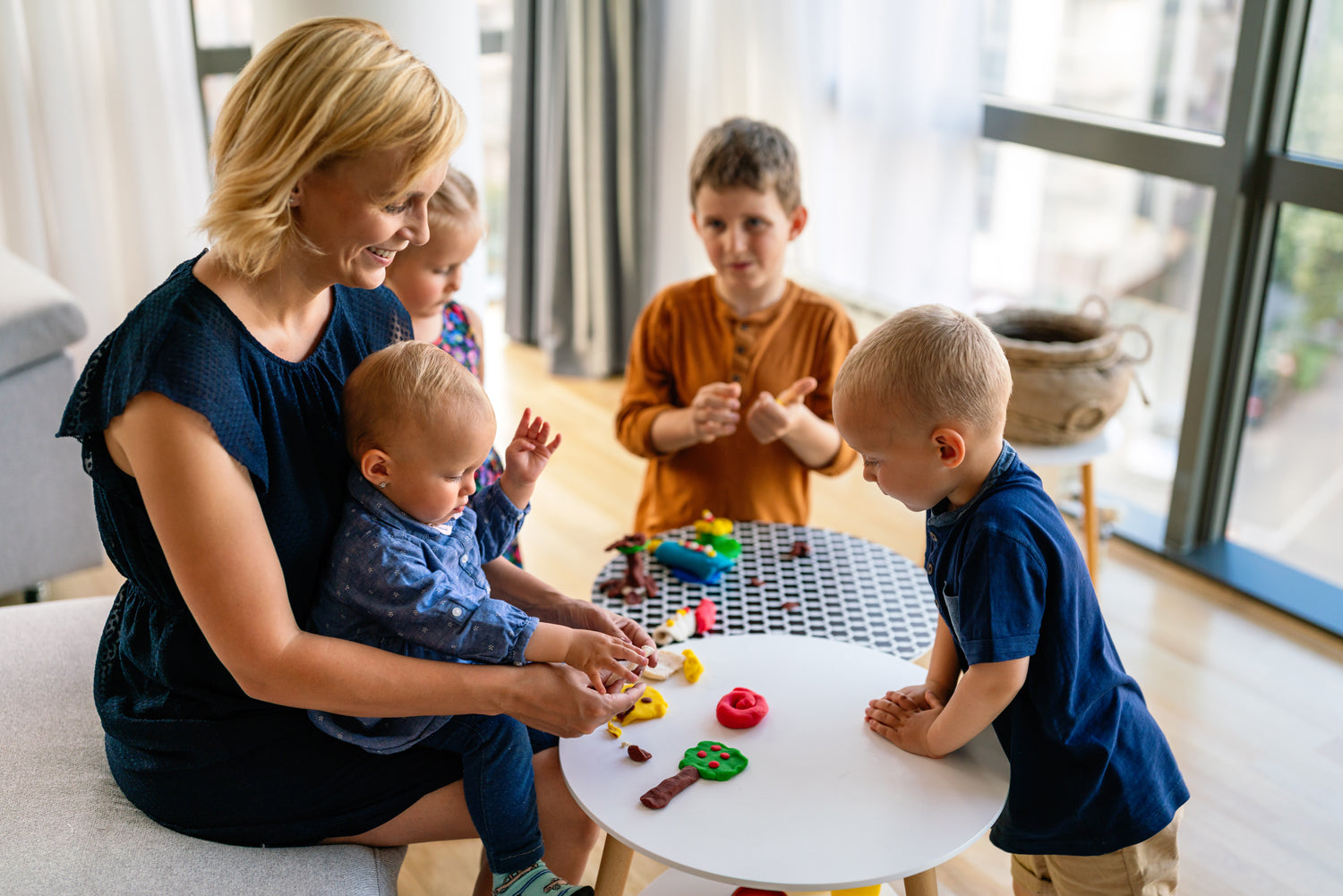Do you know the early years of your child can shape their whole life? These formative years, especially the first five, are a time of incredible growth and opportunity, setting the foundation for future learning, behavior, and well-being. During this critical period, play becomes more than just fun; it’s a powerful tool for learning and development.
Research shows that play-based learning enhances a child’s cognitive, social, emotional, and physical skills, equipping them with the tools they need to thrive.
In this blog, we’ll explore why the first five years are so important, how play-based learning transforms early development, and how global frameworks like the British EYFS and American Head Start programs support this approach. Whether you're a parent in Saudi Arabia or the UAE looking to empower your child’s growth or an educator passionate about early learning, this guide will show you the transformative power of play in shaping young minds.
The importance of the first 5 years
The first five years of a child's life are crucial for their overall development. As the brain undergoes rapid growth, laying the foundation for future learning, behaviour, and health. Early experiences shape brain architecture, with positive interactions such as talking, reading, and playing stimulating neural connections. This enhances cognitive abilities like memory, problem-solving, and reasoning.
These years are also critical for language development, as children exposed to rich language environments are more likely to develop strong vocabulary, communication, and literacy skills. In terms of social and emotional development, positive relationships with caregivers and peers help children develop emotional regulation, empathy, and social skills, which are essential for later success in school and life.
Physical development, including fine and gross motor skills, sets the stage for more complex abilities, with activities like crawling, walking, and manipulating objects strengthening muscles and coordination. The brain's plasticity during this period means it is highly receptive to learning, with experiences; whether positive or negative, having lasting effects on brain development, influencing behaviour, learning, and emotional health.
Research in neuroscience and developmental psychology has shown that the early years are a period during which a child’s brain forms more than 1 million new neural connections per second. This makes early childhood a time of unparalleled potential for shaping development.
What is play-based learning?
Play-based learning is an approach to education where children learn through engaging in activities driven by their natural curiosity and interests. It emphasizes the importance of play for children to explore, experiment, and understand the world around them. In this type of learning, children are actively involved in their own learning process, gaining knowledge and skills in a fun and developmentally appropriate way. Three examples of play-based learning include sensory play, construction play, and role play.
Playdough is an excellent tool for building hand muscles and improving fine motor skills in young children. As children roll, squish, pinch, and mould the playdough, they engage the small muscles in their hands and fingers, which are essential for tasks like holding a pencil or buttoning a shirt. The resistance of the playdough helps strengthen hand and finger muscles, promoting dexterity and hand-eye coordination. Activities such as rolling dough into small balls, pressing cookie cutters into it, or flattening it with their palms require controlled movements, allowing children to develop the muscles needed for more precise movements later.
Construction play encourages creativity and problem-solving as children build and create using blocks, LEGO sets, or other building materials. This type of play allows children to develop spatial awareness, hand-eye coordination, and fine motor skills as they experiment with balance, size, and structure. For example, a child building a tower with blocks might learn about balance and symmetry as they figure out how to make it stable, while also gaining an understanding of shapes and patterns. Construction play fosters critical thinking as children work through challenges and test their ideas in a hands-on way. It can also support teamwork as children collaborate with others, sharing ideas, negotiating roles, and work together to achieve a common goal, which enhances their communication and cooperation skills.
Roleplay, or pretend play, offers children the opportunity to take on different roles and act out various scenarios, which fosters social, emotional, and cognitive development. For example, when children pretend to be doctors, they not only explore the concept of caring for others but also learn about empathy, responsibility, and cooperation as they "treat" a patient. This role allows them to develop an understanding of caring behaviours and the importance of helping others, which strengthens their social skills. As children engage in doctor-themed play, they also expand their vocabulary, learning new words like “stethoscope” and “vaccine,” which enhances their language development. The act of communicating with friends while discussing treatments or asking questions in character also supports their communication skills, encouraging them to express their thoughts clearly. Roleplaying enables children to collaborate and share ideas, working together to come up with solutions for the scenarios they create.
Benefits of learning through play
Learning through play is a transformative and effective approach to personal development, seamlessly integrating fun with meaningful growth. By engaging children in a way that feels natural and intuitive, fostering a sense of curiosity and creativity, and laying the foundation for lifelong learning. This approach encourages exploration, embraces mistakes as part of the process, and allows creativity to flourish without limitations.
Play-based learning promotes a deeper connection to knowledge by making concepts relatable and easy to understand. Instead of simply memorizing facts, children experience and internalize them, leading to stronger retention and comprehension. The freedom to experiment and explore builds confidence, encouraging children to take risks and develop critical problem-solving skills.
Additionally, learning through play enhances engagement by tapping into intrinsic motivation. Playful activities bring joy and sustained interest, making the learning process more effective, memorable, and enjoyable. Unlike traditional methods, play removes pressure and fosters discovery, inspiring children to take ownership of their educational journey.
How does the British and American curriculum support learning through play?
Both the UK and American early years frameworks place a strong emphasis on learning through play, recognising its vital role in children’s development. In the UK, the EYFS (Early Years Foundation Stage) framework encourages children to explore, experiment, and learn through play in a rich environment. Play is embedded in all areas of learning, from language development to social skills, and educators support this by observing children's interests and providing guidance to extend their thinking. For example, in a play-based setting, a teacher might ask open-ended questions or introduce new vocabulary to help children make connections and deepen their understanding.
Similarly, in the US, the Head Start Program and Developmentally Appropriate Practice (DAP) from the National Association for the Education of Young Children (NAEYC) focuses on creating environments where play is the central tool for learning. Both frameworks emphasise that children learn best when they are actively engaged in play, which encourages creativity, problem-solving, and social interaction. Teachers in these settings observe children’s play, guide their learning, and offer materials that stimulate curiosity and growth.
In both systems, the environment is key to supporting play-based learning. Well-equipped, stimulating spaces, whether in the form of sensory tables, building blocks, or pretend play areas, provide children with opportunities to explore, collaborate, and experiment. Through careful observation and guidance, educators in both the UK and the US ensure that children’s play experiences are rich and meaningful, helping them develop foundational skills for later learning.
As you see the first five years of your child’s life are a once in a life opportunity to shape their future. By embracing play-based learning, you’re not giving them a fun way to spend their day, you’re empowering their brain development, enhancing their skills, and nurturing a lifelong love for learning.
Whether you’re a parent in Saudi Arabia, UAE, or anywhere around the globe, it is your chance to invest in one the best investments you could offer your child, in Rehla box where the activities leading frameworks like British EYFS and American Head.
Let’s turn playtime into a lifetime of possibilities. Are you ready to join the journey of shaping the leaders, thinkers and dreamers of tomorrow?
Check our Rehla Box developmental Activity boxes to support your child milestones



